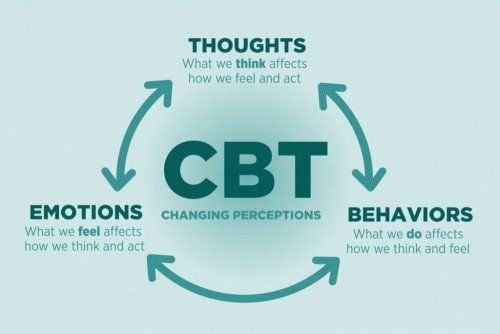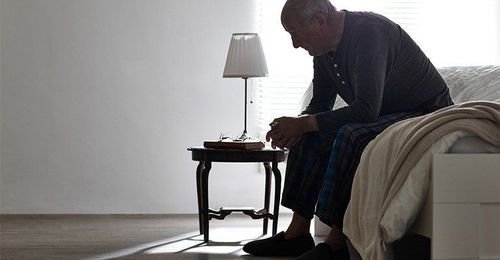This is an automatically translated article.
Insomnia is a common sleep disorder and treating insomnia is crucial to getting a good night's sleep. Cognitive behavioral therapy for insomnia is an effective treatment for chronic insomnia. Cognitive therapy helps identify thoughts and behaviors that interfere with sleep so that it can cure insomnia, not just relieve it temporarily.
1. Measures to treat insomnia
Insomnia is a common sleep disorder that makes it difficult to fall asleep, not sleeping well, or causing you to wake up too early and not be able to go back to sleep. Insomnia has been linked to a number of physical and mental health disorders. Chronic lack of sleep increases the risk of health conditions such as high blood pressure, cardiovascular disease, diabetes, and chronic pain. Certain medications, including over-the-counter medications, can also contribute to insomnia.
According to the American Academy of Sleep Medicine (AASM), about 30% of adults live with insomnia. Acute insomnia usually occurs over a few days or weeks as a result of acute stress or illness. Chronic insomnia is defined as insomnia that occurs at least three times per week for at least 3 months - affecting about 10% of adults.
There are two common treatments for insomnia:
Sleeping pills are an effective short-term treatment and are often used because they provide both immediate stress relief during times of stress or grief, It also helps you fall asleep easier. Currently, there are a number of new sleeping pills that have been approved for longer use. However, they may not be the best long-term insomnia treatment. Cognitive behavioral therapy (CBT-I) for insomnia may be a good treatment option if you have persistent sleep problems, you are worried about dependence on sleeping pills, or if sleeping pills ineffective or cause unpleasant side effects. Unlike pills, cognitive therapy helps to correct the underlying causes of sleep problems, not just provide temporary relief from insomnia. This takes time, effort, and patience from both the patient and the therapist. In some cases, a combination of sleeping pills and cognitive therapy may be the best cure for insomnia.
2. What is cognitive therapy?
Cognitive behavioral therapy for insomnia (CBT-I) is considered an effective treatment for chronic insomnia and is often recommended as the first choice of treatment. Cognitive therapy helps identify thoughts and behaviors that interfere with sleep and replaces them with thoughts and behaviors that make it easier for the person to fall asleep peacefully. The goal is to address the causes of insomnia to cure insomnia completely, not just relieve it temporarily.
Cognitive behavioral therapy for insomnia is a structured program that helps identify and replace thoughts and behaviors that cause or worsen sleep problems with new habits. Good habits promote good sleep. To determine the best treatment for insomnia, your sleep therapist may ask you to keep a detailed sleep diary for one to two weeks.
The cognitive part of cognitive behavioral therapy guides you to recognize and change beliefs that affect your ability to sleep. This type of therapy can help you control or get rid of the negative thoughts and worries that keep you awake. The behavioral part of cognitive behavioral therapy helps you develop good sleep habits and avoid behaviors that keep you from sleeping well.

CBT-I được coi là phương pháp điều trị hiệu quả cho chứng mất ngủ mãn tính.
3. Techniques in cognitive behavioral therapy
Cognitive behavioral therapy is a form of talk therapy or psychotherapy. In it, mental health professionals identify, address, and correct negative or incorrect thoughts and behaviors. They will help you devise strategies to deal with problems more effectively. Depending on your needs, a sleep therapist may recommend some of the following techniques:
Cognitive restructuring. One of the first things therapists do to treat chronic insomnia is to try to change a patient's thinking about sleep, especially guilt and anxiety about not being able to sleep. So, your sleep therapist may ask you to keep a diary for several weeks to determine how best to deal with your insomnia. Stimulus control therapy. This technique helps to remove the mental triggers that make it difficult to fall asleep. Specifically, patients are instructed to set consistent bedtimes and wake-up times and avoid napping, using only the bed to sleep (rather than as a place to work, watch TV, computer, etc.). ) and leave the bedroom if you can't go to sleep within 20 minutes, only returning when you are sleepy. People with insomnia tend to spend more time in bed because of sleep stress, so stimulus control works to improve sleep hygiene by limiting time in bed. Biofeedback. This method allows you to observe biomarkers such as heart rate and muscle tension and shows you how to correct them. Your sleep specialist may ask you to wear a biofeedback device to record your daily biological patterns. This information can help identify patterns that affect sleep. Limit lying in bed when not sleeping. Lying in bed while you are awake can become a bad habit that leads to poor sleep. This treatment technique reduces the patient's time in bed, causes partial insomnia, and makes the patient more tired the next night. As sleep improves, the patient's time in bed is gradually increased. Sleep hygiene. This therapy technique involves changing basic lifestyle habits that affect sleep, such as smoking or drinking too much caffeine late in the day, drinking too much alcohol, or not exercising regularly. . Besides that, there are tips to help you sleep better, such as how to relax an hour or two before bed. Improve sleeping environment. This helps to create a comfortable sleeping environment, such as keeping your bedroom quiet, dark and cool, having no televisions in the bedroom, and keeping clocks out of sight. Relax. This method helps you calm your mind and body. Establishing a break time creates a buffer between busy work, family time, and bedtime. Helpful relaxation methods include meditation, yoga, muscle relaxation, listening to soft music, and others. Cognitive behavioral therapists may also recommend a variety of relaxation techniques to enhance the effectiveness of therapy. Cognitive behavioral therapy for insomnia can be beneficial for most people who have sleep problems but need consistent and consistent practice. At the same time, cognitive behavioral therapy can be effective for people with primary insomnia as well as those with physical problems, such as chronic pain, or mental health disorders such as depression and anxiety. worried. Furthermore, the effectiveness of therapy is long-lasting and there is no evidence that cognitive behavioral therapy causes adverse health effects.
Please follow the website: Vinmec.com regularly to update many other useful information.
Reference articles: webmd.com, mayoclinic.org, healthline.com













